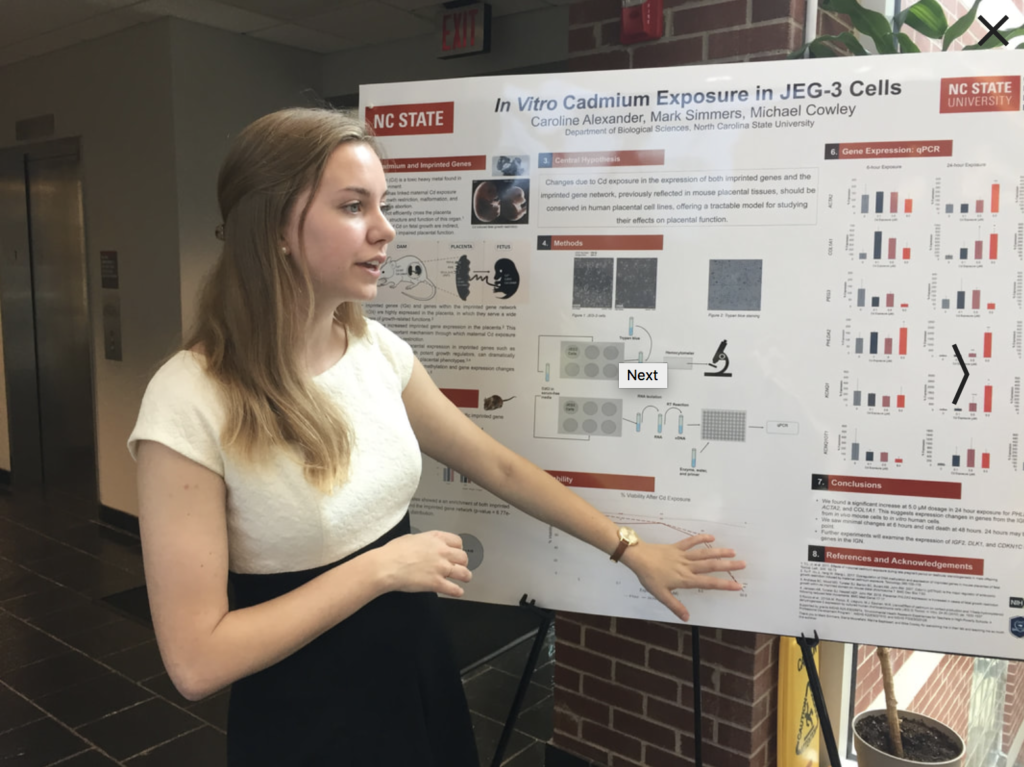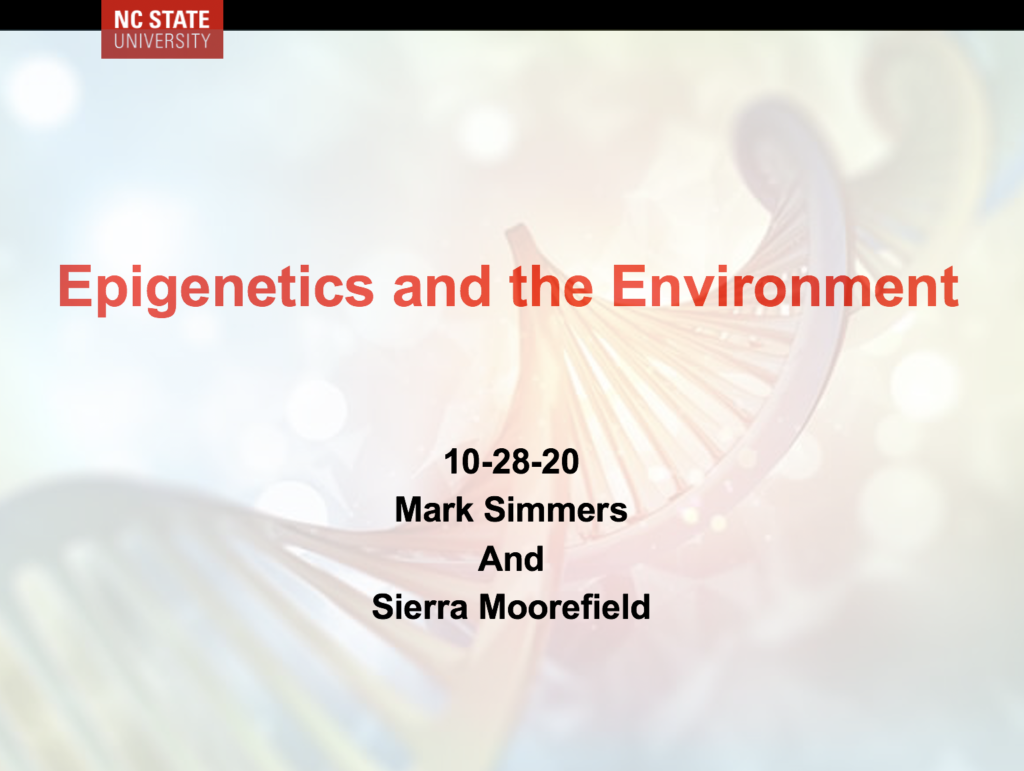Teaching Statement
As a graduate student in a research-based program, progressing experiments and advancing projects is a primary focus. However, the opportunities to present data, communicate with both the scientific and general community, participate in public outreach, and interact directly with undergraduate students has supplemented my research experience with a complex set of pedagogical approaches that extend beyond the bench and into the classroom. Through these experiences across a diverse range of science disciplines my approach to teaching has developed into a targeted focus on student outcomes. Using quantifiable and objective analysis of student’s understanding such as classroom discussion and examinations, I have structured lessons and lectures as well as activities, labs, and assignments that drive active participation, understanding, and engagement.
During the summer of 2019, the biology department at North Carolina State University in collaboration with the Center for Human Health and the Environment led a summer program for teachers from impoverished communities across Durham to promote science and research in the classroom. I led both microbiology labs and research mentorship for the teachers, emphasizing techniques and tools necessary to bring these activities directly to their high school classrooms in an efficient and cost-effective way. As an undergraduate I worked as a tutor in the Zoology course at Palomar University creating lesson plans and study guides to assist students in preparation for practical examinations. I have guest lectured in Michael Cowley’s Environment and Epigenetic course at North Carolina State University, and mentored undergraduates in the Cowley lab as well. These experiences have allowed me to grow comfortable with a wide variety of teaching subjects and environments, and to craft instruction suitable for different learning styles and paces.
In conclusion, my approach to teaching is to construct and align achievable student outcomes specifically targeted to provide the tools and strengths needed for long term student success both in my classroom and beyond into their professional lives. Creating a bottom up structure that provides the foundation for success, I aim to give students the scaffolding to construct bigger questions and a deeper understanding of the topics both in and out of the classroom.
Summer Teaching Program:
In the summer of 2019 the Center for Human Health and Disease led a summer program for teachers to promote science and research in the classroom. I had the opportunity to mentor two teachers through a set of experiments related to cadmium exposure on placental trophoblast cells.

– High school teacher Caroline presents the results of her summer project with the Cowley Lab. Aug-19
Guest Lectures
Each year I guest lecture students in the Environment and Epigenetics course at North Carolina State University. This year presented a unique opportunity to add virtual lectures to my teaching experience.

Click here to download a PDF version of the most recent lecture material.
Mark Simmers
Research Assistant, PhD Candidate
Center for Human Health and the Environment
Department of Biological Sciences
North Carolina State University
Raleigh, NC 27695
